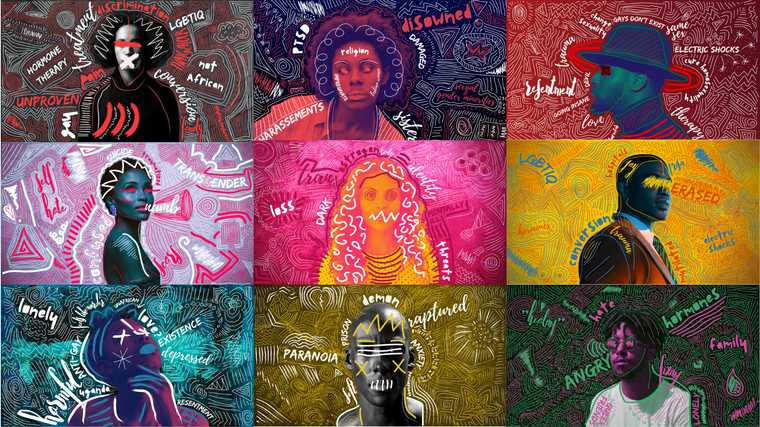
‘I was afraid I was going to die’: Kenyan survivor of ‘conversion therapy’
Survivors of anti-LGBT ‘treatments’ in Kenya, Tanzania and Uganda describe effects on their mental health, family relations and general well-being

To listen to all survivors’ testimonies watch the videos on our YouTube
When Samuel (not his real name) was a teenager, he was sent to live in a windowless room in a deserted area on the outskirts of Nairobi, the Kenyan capital. Here, he says, he was given electric shocks and shown pictures of “ruptured anuses and wounded penises” by people who told him that if he didn’t stop being gay, he would “meet the same fate”.
“I was not allowed to make or receive any phone calls,” Samuel continued. “They also gave me a lot of drugs that made me drowsy and exhausted all the time […] I felt abandoned and was afraid I was going to die.” He lived at what he called a “conversion therapy institute” for a year and a half, and “hated my parents for putting me through that”.
Samuel is just one of more than 50 survivors of anti-LGBT ‘conversion therapy’ practices (which seek to change an individual’s sexual orientation or gender identity) who shared their experiences with researchers working with openDemocracy on a special investigation into these activities across East Africa – in Kenya, Tanzania and Uganda.
“It got beyond overwhelming,” said a lesbian woman from Uganda, who said that she had also been subjected to electric shocks as part of anti-LGBT conversion therapy at a clinic in the capital, Kampala. Although this took place a long time ago, she said “the resentment I felt for my family [who took her there] has never really gone away.”
Many of the interviewees said that family members had taken them to providers of this ‘therapy’. LGBT identities are widely stigmatised in East Africa, and anal sex is criminalised and punishable with prison sentences in all three countries.
A transgender woman in Tanzania said her mother took her to a hospital in Dar es Salaam, Tanzania’s largest city, where a doctor attempted to convince her that one cannot be transgender. As a result, she said, “My mistrust issues towards health institutions [are] very high. I could get very sick and not go and get a check-up.”
In Kenya, two interviewees described being given hormones (to make a gay man seem more ‘masculine’, and to limit a trans person’s ability to present in their gender). openDemocracy’s investigation found that controversial ‘treatments’ are easy to find across the region – including at health facilities that specifically reach out to gay men.
openDemocracy undercover reporters were told at health facilities in Dar es Salaam, Kampala and Nairobi that being gay is “evil”, something “for whites” and a mental health problem; to try “exposure therapy” by employing “a housemaid [you] can get attracted [to]’’; and to give a gay teenager a sleeping pill to prevent him from masturbating.
Survivors interviewed by researchers working with openDemocracy described lasting effects on their mental health, family relations and general well-being. Some said they dropped out of school and lost friends, in addition to enduring painful ‘treatment’. Interviewees came from several generations; some talked about recent experiences, while others described the aftermath of these practices years after they had happened.
These kinds of activities have been condemned by doctors, psychologists and counsellors around the world, says the International Lesbian, Gay, Bisexual, Trans and Intersex Association (ILGA), which called them “ineffective and harmful” to mental health.
Three countries – Brazil, Ecuador and Malta – have banned these practices, while Germany has banned them when applied to minors. The UK government has also recently committed to banning conversion therapy.
Electric shocks and hormones
Many of the people interviewed described anti-LGBT counselling or ‘talk therapy’. Some also described physical therapies, including being given hormones and electric shocks.
A gay man in Kenya described how his family “decided that I needed ‘fixing’” a few years ago. “They did not like that I am gay and effeminate, so they got a doctor to give me testosterone to enable me to become more masculine. They would bring random women and force me to have sex with them, so that I ‘enjoy’ sex and become heterosexual. They would tell me how my life is going to be hard as a gay person.”
“I did what my family wanted to prove that I was invested in ‘healing’,” he explained, but “I was constantly moody and angry […] and felt like I hated everyone.”
Several interviewees spoke about receiving ‘therapy’ via places of worship. A woman in Uganda described being “outed” when she was a youth counsellor at her church, which then “advised my family to pay for conversion therapy for me. It was expensive for my family, but they believed it was for my moral good and their reputation.”
A lesbian woman in Kenya said that her family – who she described as “radical Muslims” – “threatened to take me to a conversion camp to teach me how to be a good Muslim woman”. She said that, in the end, they locked her in a room where she was “forced to fast and pray day and night”. They even said “that queer people should be killed.”
Some interviewees described receiving support from local civil society organisations and human rights institutions, which offered help, including speaking to their families, to convince them to stop trying to ‘cure’ their same-sex attraction or gender identity.
In Uganda, a gay man described being given “tablets” that a hospital counsellor said “would replace my attraction to other men with disgust”. To counter such attitudes, he said that more effective advocacy and education initiatives are needed.
“Training institutions that train psychologists should teach that homosexuality is no longer considered a mental disorder,” he argued. “There is a need for advocacy about this practice in the same way we do advocacy about HIV.”

Survivors of ‘conversion therapy’ can contact the following for support:
- Kenya:
Tel: +254 20 2497228, mobile: +254 713 797 157
- Tanzania:
Or email.
- Uganda:

All videos and illustrations: Inge Snip
The voices you hear are those of voice actors in Kenya, Tanzania and Uganda. They are based on testimonials of real survivors to protect their identity.
Read more
Get our weekly email
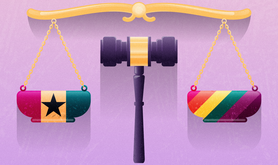
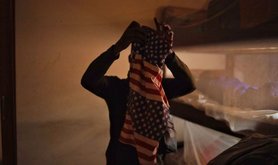
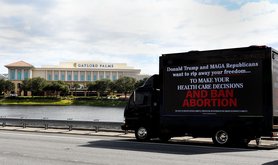
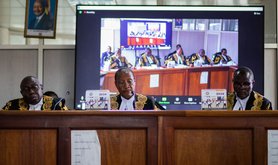
Comments
We encourage anyone to comment, please consult the oD commenting guidelines if you have any questions.